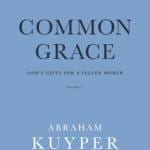On my occasional trip plodding slowly through the Church Fathers, I’ve finally finished the last and longest Augustine volume containing his sermons on the book of Psalms. Frankly, this book is fantastic.
Oh, don’t get me wrong. It has all of Augustine’s normal exegetical weaknesses. He is far too prone to allegory, he wants to force the text into his existing theological framework, and he’s working with a poor translation of Scriptures into Latin. For more on all of that, see Gerald Bray’s excellent book. What’s more, the version I read (the 19th century volume edited by Philip Schaff) is apparently heavily edited and abridged. The translator said that he was tasked with reducing six volumes of Latin down to one volume of English. So it may be that we’re really getting the cream of the crop, and that if I had read all of Augustine’s work (which would have been at least ten volumes in English), I would have been much less impressed.
And yet despite all of these limitations, this work on the Psalms is a delight. Augustine’s reflections and sermons on the Psalms are thoughtful, devotional, and utterly worth your time. But don’t take my word for it, here are some samples of Augustine’s writing:
Psalm 127: “If we wish to be guarded by Him who was humbled for our sakes, and who was exalted to keep us, let us be humble. Let no one assume anything unto himself. No man hath any good, except he hath received it from Him who alone is good. But he who chooseth to arrogate wisdom unto himself, is a fool. Let him be humble that wisdom may come, and may enlighten him.”
Psalm 145: “The framework of creation, this most perfectly ordered beauty, ascending form lowest to highest, descending from highest to lowest, never broken, but tempered together of things unlike, all praiseth God. Wherefore then doth all praise God? Because when thou considerest it, and seest its beauty, thou in it praisest God. The beauty of the earth is a kind of voice of the dumb earth…. And this which thou has found in it, is the very voice of its confession, that thou praise the Creator. When thou hast thought on the universal beauty of this world, doth not its very beauty as it were with one voice answer thee, ‘I made not myself, God made me’?”
Psalm 123: “What maketh the heart of a Christian heavy? Because he is a pilgrim, and longeth for his country. If thy heart be heavy on this score, although thou has been prosperous in the world, still thou dost groan: and if all things combine to render thee prosperous, and this world smile upon thee on every side, thou nevertheless groanest, because thou seest that thou art set in a pilgrimage; and feelest that thou hast indeed happiness in the eyes of fools, but not as yet after the promise of Christ: this thou seekest with groans, this thou seekest with longings, and by longing ascendest…”
Psalm 78: “Whosoever therefore doth cleave to CHrist, hath the whole of the good which even in the letters of the Law he perceiveth not: but whosoever is an alien from Christ, doth neither perceive, nor hath.”
Psalm 55: “Think ye not that without profit there are evil men in this world, and that no good God maketh of them. Every evil man either on this account liveth that he may be corrected, or on this account liveth that through him a good man may be exercised [sanctified]. O that therefore they that do now exercise us would be converted, and together with us be exercised! Nevertheless, so long as they are such as to exercise, let us not hate them: because in that wherein any one of them is evil, whether unto the end he is to persevere we know not, and ofttimes when to thyself thou seemest to have been hating an enemy, thou hast been hating a brother, and knowest not… let God sparing evil men profit thee, so that thou show mercy: because perchance thou too, if thou art a good man, out of an evil man hast been made a good man: and if God spared not evil men, not even thou wouldst be found to return thanks. May He also spare others, that hath spared thee also.”
Psalm 74: “For not in vain came Christ, or in vain was Christ slain, or in vain did the corn fall into the ground; but it fell that it might rise manifold. A serpent was lifted up in the desert, in order that it might cure of the poison him that was smitten. Observe what was done. Do not think it to be a vain thing that He came: lest He find thee evil, when He shall have come a second time.”
Psalm 85: “When therefore death shall be swallowed up in victory, these things shall no longer be: there will be full and eternal peace. We shall be in a City, of which, brethren, when I speak I find it hard to leave off, especially when offenses wax common. Who would not long for that City whence no friend goeth out, whither no enemy entereth, where is no tempter, no seditious person, no one dividing God’s people, no one wearying the Church in the service of the devil, since the prince himself of all such is cast into eternal fire, and with him those who consent unto him, and who have no will to retire from him? There shall be peace made pure in the sons of God, all loving one another, seeing one another full of God, since God shall be all in all. We shall have God as our common object of vision, God as our common possession, God as our common peace. For whatever there is which He now giveth unto us, He Himself shall be unto us instead of His gifts; this will be full and perfect peace…. Our joy, our peace, our rest, the end of all troubles, is none but God: blessed are ‘they that turn their hearts unto Him.'”












